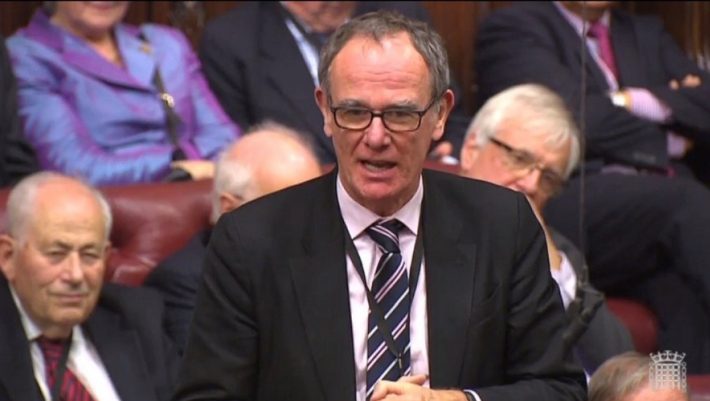Shaping policy in the House of Lords
In October 2018, Sian De Bell participated in BES Parliamentary Shadowing Scheme. Check out her blog to read about her experience!

In October 2018, I spent two days in Westminster shadowing Lord Teverson, chair of the EU Energy and Environment subcommittee. It was interesting to learn about the workings of the House of Lords and how they allow the thorough review of new legislation but I also gained a broader view of policy-making. This blog answers the questions I have been asked most about the experience.
What did you do?
Both days were full: the big events were the EU Energy and Environment subcommittee meeting with Michael Gove and an EU committee meeting, both of which had pre-meeting briefings. A select committee hearing on chemical regulations gave me the chance to see academics giving evidence to politicians. There was also some media and outreach (a telephone interview and video clip for Twitter), a Grand Committee hearing on energy and carbon reporting by businesses, questions in the House of Lords, a Liberal Democrat party meeting, a breakfast meeting on green finance, and lobbying meetings.
How can I share my research?
For me, gaining insight into how to communicate research to policymakers was my main motivation for applying for the shadowing scheme. I learnt that it depends on both the evidence or research and your aims.
If you want to communicate general evidence, then select committees and organisations such as the Parliamentary Office for Science and Technology (POST) issue calls for evidence. These give opportunities to submit written evidence and in some cases speak to a committee on a topic. Ecologists at any career stage can engage individually, collectively, and as members of organisations, such as the BES. During my placement, I learnt how the BES facilitates the communication of evidence from its members. By registering on the BES Interests and Expertise Database and being in contact with the policy team, academics can make contributions to responses to relevant consultations. Workshops and conferences run by the BES are also frequently attended by Defra civil servants involved in policy development, providing lots of opportunities to engage.
Specific changes to policy and bills can be achieved through lobbying. Whilst scientific research might be used to provide evidence for the proposed changes, lobbying is usually the work of organisations such as Greener UK rather than individuals. It is difficult and requires support in terms of groups behind the action to persuade politicians to listen.
And what about Brexit?
The big question! In the course of a one-hour meeting with the Secretary of State for Environment, Food and Rural Affairs, Michael Gove, on the possibility of a no deal exit topics ranged from fishing quotas, to plant passports, to live animal exports, to travel for pets. Other meetings I attended highlighted issues which I would not have known existed, let alone identified as problems. For example, laws on data ownership mean there are databases on the environmental and health impacts of chemicals which the UK will not be able to access after leaving the EU. There is so much uncertainty but everybody I saw was working incredibly hard to find solutions to the challenges which will result from any Brexit scenario.
I would really recommend the BES shadowing scheme to anyone seeking to communicate their research to a wider audience. Seeing day to day life in the policy world has helped me understand how it works and, more generally, made me consider how I talk about my research.
Like what we stand for?
Support our mission and help develop the next generation of ecologists by donating to the British Ecological Society.